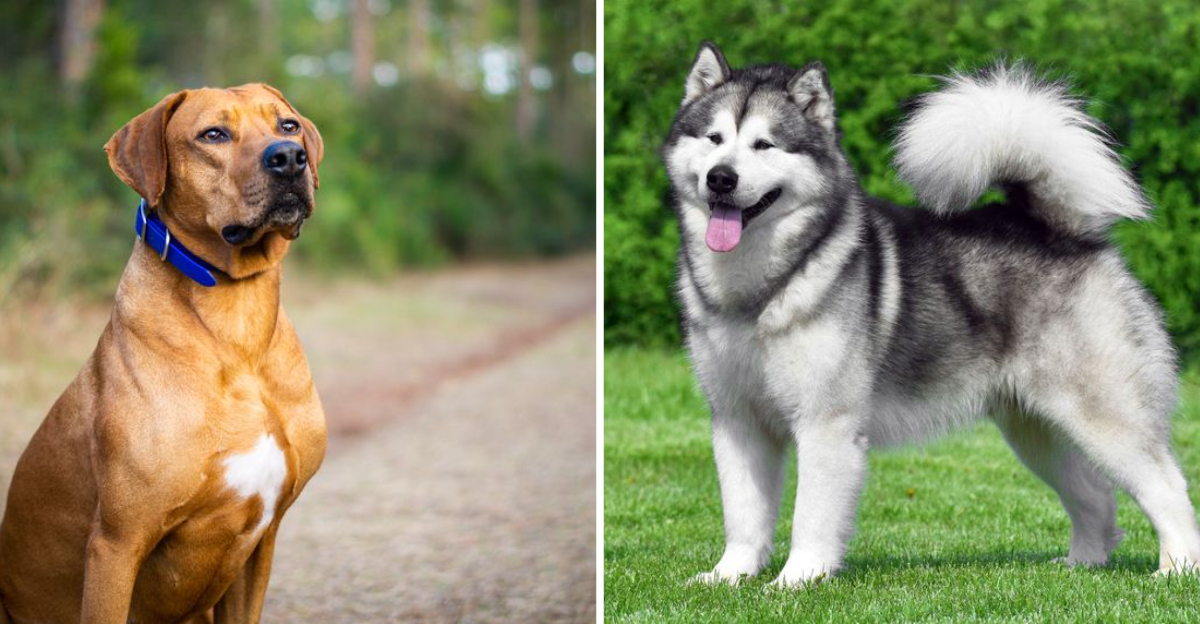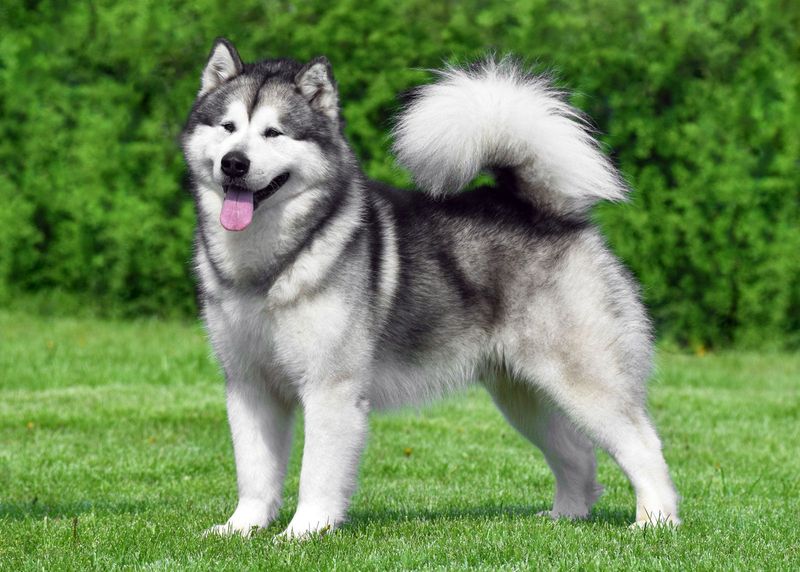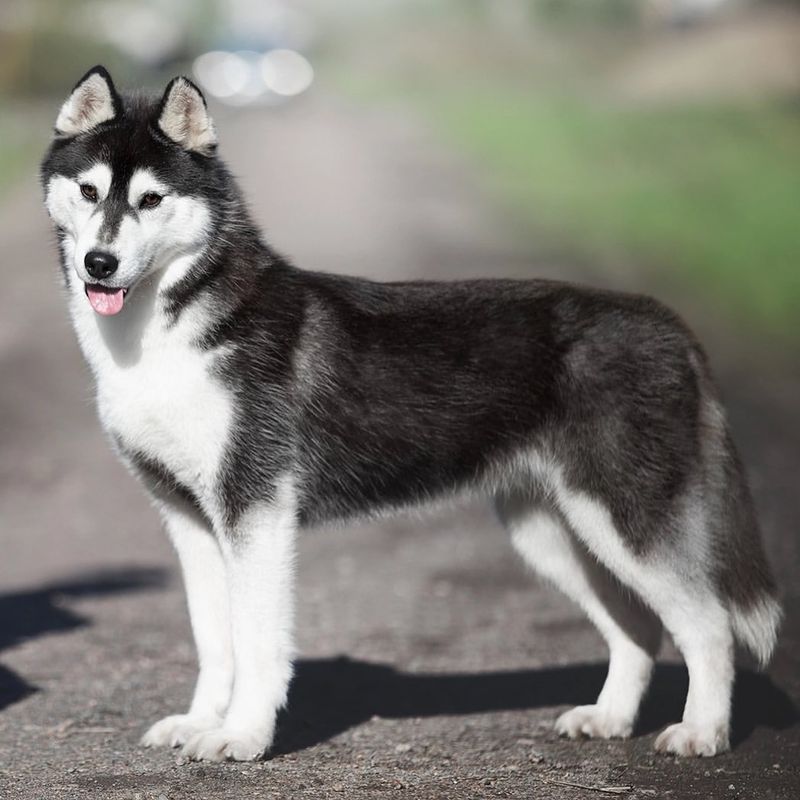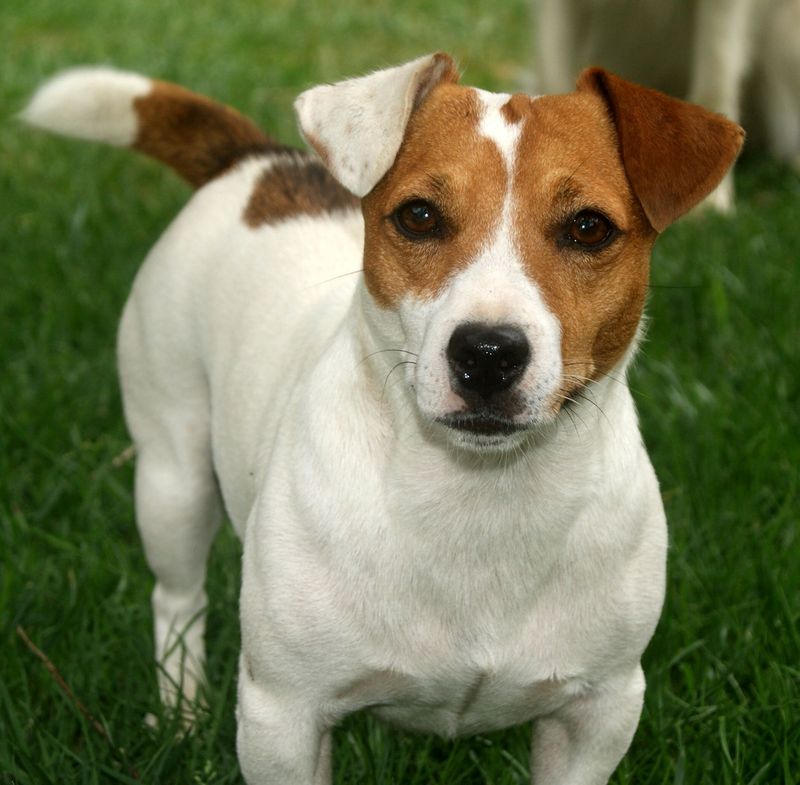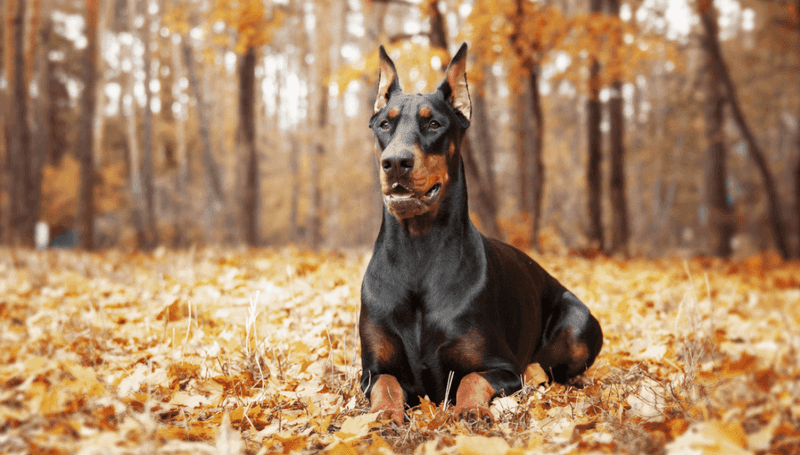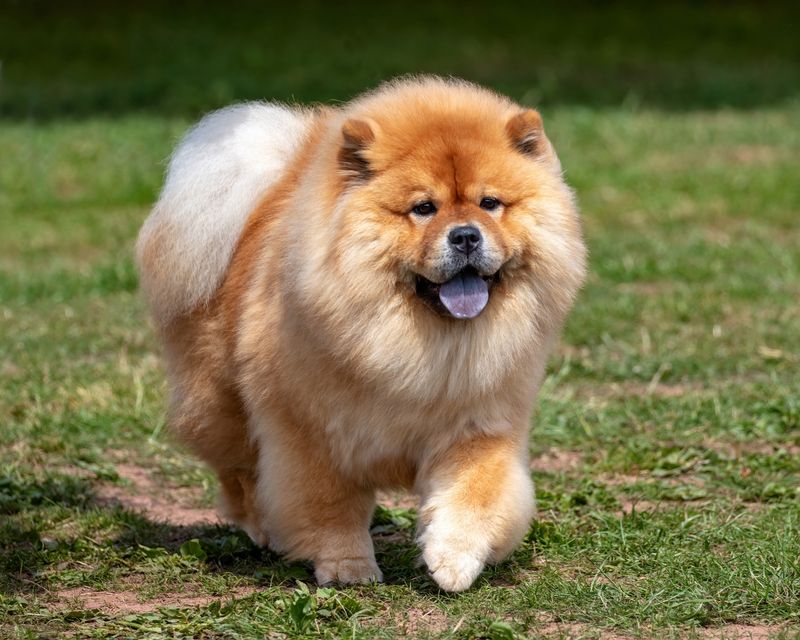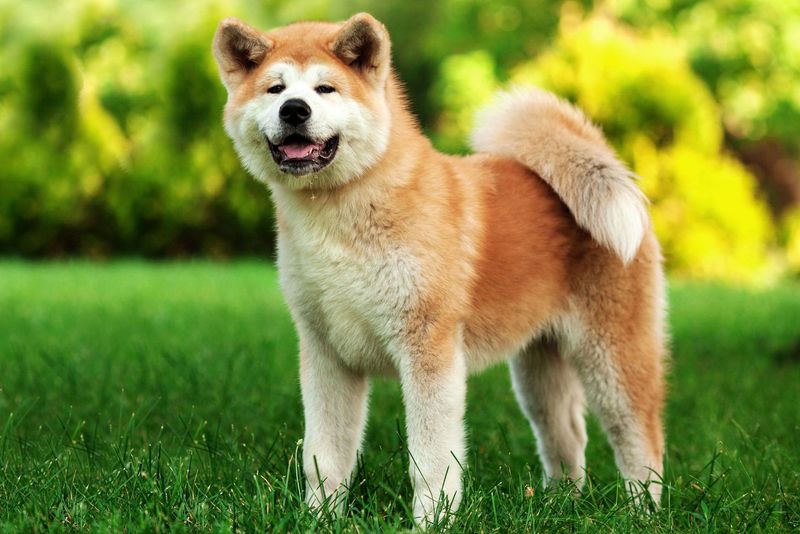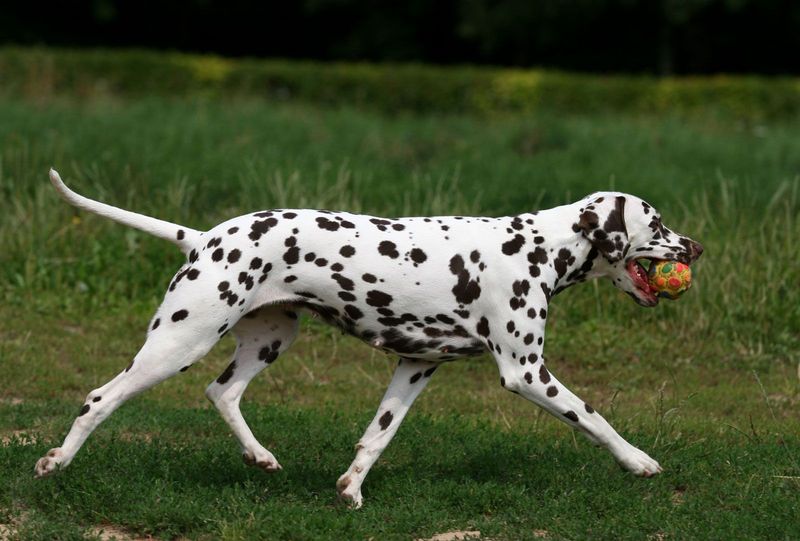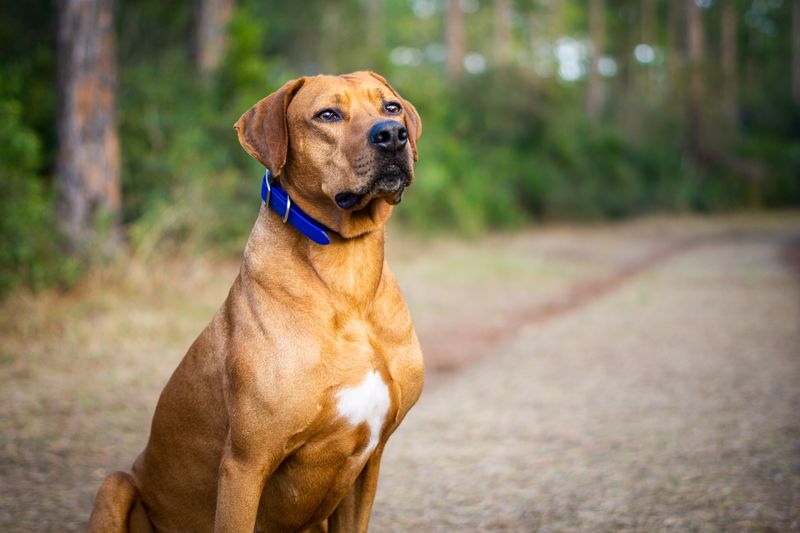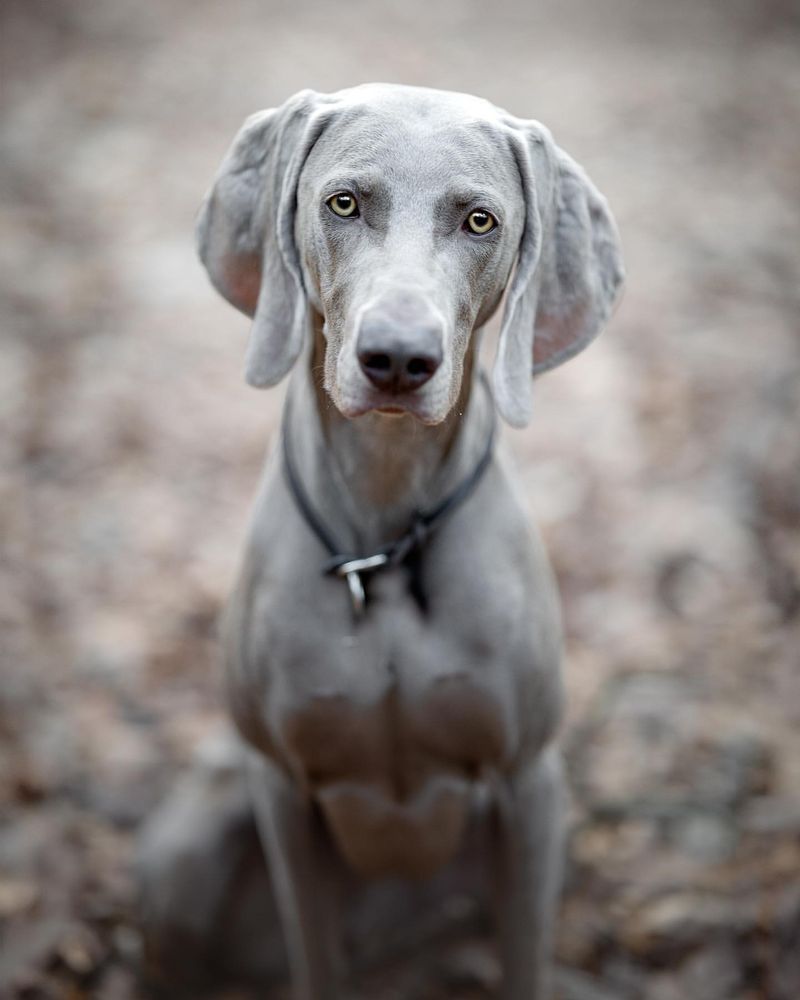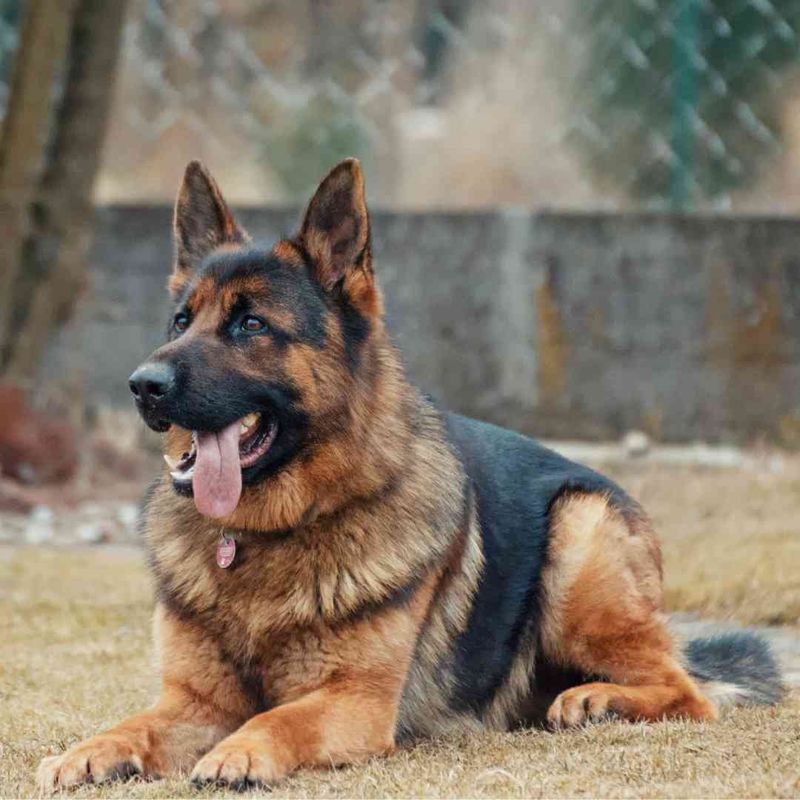📖 Table of Content:
Owning a dog can be a joyful experience, but not all breeds are suited for homes with other pets. Some dog breeds have strong prey drives, dominant personalities, or protective natures that require careful supervision when around other animals.
Whether you’re a new pet owner or someone looking to expand your furry family, it’s essential to understand which breeds might need more attention and training to ensure a harmonious household. We explore 10 dog breeds that require caution when interacting with other pets, offering insights and advice for pet owners.
1. Alaskan Malamute
Strong and enduring, Alaskan Malamutes were originally bred for sledding and heavy work in cold climates. Their imposing presence and strong prey drive can make them difficult to manage around smaller pets.
While they are friendly and affectionate towards humans, Malamutes have a natural inclination to chase and sometimes harm small animals. Early socialization and consistent training are crucial to taming these instincts.
Owners should provide ample exercise and mental stimulation to prevent boredom, which can lead to undesirable behaviors. Cautious supervision is a must in multi-pet households.
2. Siberian Husky
Admired for their wolf-like appearance and striking eyes, Siberian Huskies may not be ideal for multi-pet homes due to their strong predatory instincts, which can endanger smaller pets like cats or rabbits.
Huskies are known for their independence and stubbornness, making training a demanding task. Consistent and patient training can help mitigate their prey drive, but it’s not always foolproof.
Engagement in activities like running or sledding can help channel their energy, reducing potential conflicts. Owners must remain vigilant and never leave Huskies unsupervised with smaller animals.
3. Jack Russell Terrier
Energetic and intelligent, Jack Russell Terriers were originally bred for hunting small game like foxes. Their high energy and strong hunting instincts can make them a poor fit for homes with smaller animals.
Despite their small size, Jack Russells are tenacious and often unaware of their limitations. They require diligent training and socialization to coexist with other pets.
Regular exercise and mental challenges are essential, as boredom can lead to destructive behavior. Dedicated owners can help Jack Russells adapt, but caution is advised around small or fragile pets.
4. Doberman Pinscher
Loyal and intelligent, Doberman Pinschers are often employed as guard dogs due to their protective instincts. While affectionate, their dominant nature can be overwhelming for other pets.
Socialization from an early age is vital to curb any aggressive tendencies. Dobermans need clear leadership and firm, consistent training to integrate well within a multi-pet household.
Physical activity is crucial to keep them mentally and physically healthy. Without proper guidance, their protective instincts may lead to conflicts with other animals. Awareness and training can help manage their behavior effectively.
5. Chow Chow
Chow Chows are known for their lion-like mane and dignified demeanor, but they can be aloof and independent. Their dominant personality might not mesh well with other pets.
Early socialization is key to helping them adapt to living with other animals. Chows may become territorial and exhibit aggressive behavior if not properly trained.
Owners must establish themselves as confident leaders, providing clear guidance and boundaries. With patience and persistence, Chow Chows can learn to coexist with other pets, but careful management is essential to prevent conflicts.
6. Akita
Loyal and courageous, Akitas originated in Japan as hunting dogs. Their strong will and protective instincts can make them difficult to manage with other pets.
Training and socialization are crucial from a young age to manage their dominant tendencies. Akitas have a strong prey drive and may see smaller animals as threats.
Owners should provide structured environments and regular exercise to prevent boredom-related issues. While they can be loving family members, Akitas require experienced handling to ensure peaceful coexistence with other pets.
7. Dalmatian
Famous for their unique spots and boundless energy, Dalmatians can be challenging around smaller pets due to their exuberance and strong prey drive.
Dalmatians require early training to help manage their instincts and energetic nature. Regular exercise is vital to keep them calm and content.
Their playful demeanor can sometimes be overwhelming for more timid animals. While they can be affectionate companions, it’s important for owners to supervise interactions with smaller pets and ensure a balanced environment.
8. Rhodesian Ridgeback
Strong Rhodesian Ridgebacks were originally bred to hunt lions in Africa. Their bravery and independence can make them difficult to manage in multi-pet households.
Ridgebacks have a strong prey drive and require early socialization to adjust well with other animals. Their size and strength can be intimidating to smaller pets.
Owners must provide ample physical activity and mental challenges to keep them engaged. While they can be gentle giants with their human families, cautious supervision is needed when they are around other animals.
9. Weimaraner
Sleek and striking with their gray coats, Weimaraners boast a hunting heritage that gives them a strong prey drive, requiring caution around smaller pets.
Training and socialization should start early to manage their enthusiastic personalities. They thrive on physical activity, needing plenty of exercise to stay balanced and content.
Their friendly and affectionate demeanor towards humans doesn’t always extend to other animals. Owners need to be vigilant and ensure a controlled environment to prevent potential conflicts.
10. German Shepherd
Intelligent and versatile, German Shepherds are celebrated for their roles as police and service dogs. However, their protective instincts and dominant nature can make them challenging in multi-pet households.
Early and consistent training is crucial to manage their behavior and ensure they respect boundaries with other animals. Socialization can help mitigate their sometimes overzealous protective instincts.
They require both mental and physical stimulation to prevent boredom and ensure harmonious living with other pets. With the right guidance, German Shepherds can be loving companions in a diverse pet environment.
